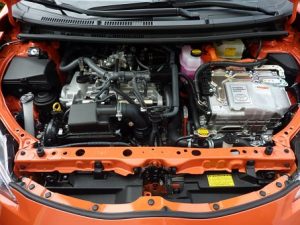 Urban legends and myths about cars have been around forever, and most people tend to believe them simply because they have heard them so many times. It’s time to dispel the car myths you’ve bought into, since believing some of these widely spread myths can actually do damage to your car. Don’t fall prey to the following four car myths or it might be your wallet that pays the price.
Urban legends and myths about cars have been around forever, and most people tend to believe them simply because they have heard them so many times. It’s time to dispel the car myths you’ve bought into, since believing some of these widely spread myths can actually do damage to your car. Don’t fall prey to the following four car myths or it might be your wallet that pays the price.
You need to change your oil every 3,000 miles
You’ve probably heard this age-old car myth from the day you got your license. While this oil change rule might still be true for older cars, recent cars can go up to 10,000 miles without needing an oil change. Stop wasting your money at the mechanic every time you’ve added 3,000 miles to the odometer, and instead, take the car in for an oil change every 7,000 to 9,000 miles or so.
Just because you don’t need your oil changed every 3,000 miles doesn’t mean you don’t need your oil changed period. Clean oil is crucial to a well lubricated engine, so don’t put off the oil change too long or you might end up with a car that can no longer run.
Red cars are pulled over for speeding more often than non-red cars
Most people tend to think that cops have it out for red car owners, but it turns out that’s just another inaccurate car myth. Car color doesn’t affect whether you’ll be pulled over for speeding; it depends on how fast you were going. The make and model of a car might actually affect who gets pulled over more often, not car color.
Forbes reported that the Mercedes-Benz SL-Class is the most ticketed car on the road. If you’re driving this car, you are four times more likely to be pulled over. I guess money really can’t buy you everything.
Premium or plus-grade gasoline is better for your car
Just because something is more expensive does not mean it’s better. This is definitely the case with premium and plus-grade gasoline. Although these types of gas are more expensive, your car will not receive any other benefits by using these fuel types. Instead, using a higher octane gasoline than what the owner manual recommends for your car can potentially damage the vehicle, so think twice before upgrading the next time you stop to fill up.
Driving recharges your car’s battery
Contrary to popular belief, once you’ve had your car battery jumped, driving the car will not recharge the battery. Instead, it will only maintain the charge which will run out as soon as the car is off. If your battery is dead or dying, the best way to actually recharge it is by using a multi-stage battery charger.
Some of the most widely spread and believed myths are those about cars. Since most of us don’t know much about the inner workings of our vehicles, we tend to believe car myths because they are presented as facts. Stop buying into these four car myths to help save money, keep your car in better condition, and avoid getting stuck somewhere with a dead car battery.
Image via Pixabay



![[Facebook]](https://www.scottclarkstoyota.com/blogs/207/wp-content/plugins/bookmarkify/facebook.png)
![[LinkedIn]](https://www.scottclarkstoyota.com/blogs/207/wp-content/plugins/bookmarkify/linkedin.png)
![[Twitter]](https://www.scottclarkstoyota.com/blogs/207/wp-content/plugins/bookmarkify/twitter.png)
![[Yahoo!]](https://www.scottclarkstoyota.com/blogs/207/wp-content/plugins/bookmarkify/yahoo.png)
![[Email]](https://www.scottclarkstoyota.com/blogs/207/wp-content/plugins/bookmarkify/email.png)


